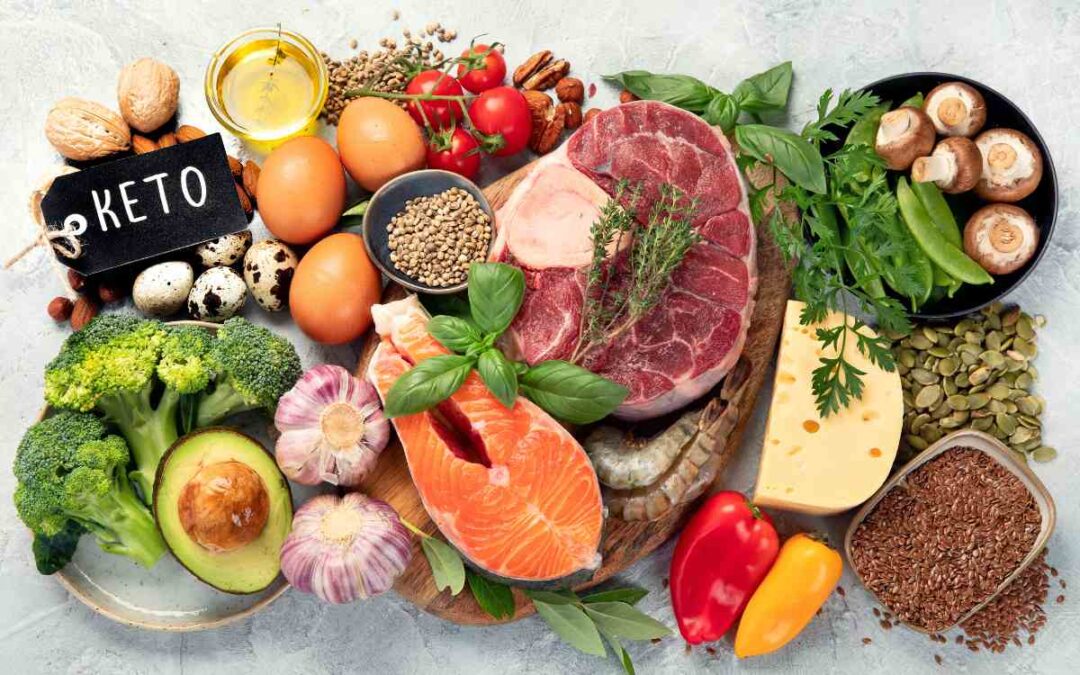The ketogenic (keto) diet has become one of the most popular low-carb diets in the world, praised for its ability to help people lose weight, improve mental clarity, and boost energy levels. But what exactly is the keto diet, and how can beginners approach a keto diet plan effectively? This comprehensive guide breaks down the fundamentals of the keto lifestyle, provides a detailed list of what to eat and avoid, and offers tips for long-term success.
What Is the Keto Diet?
The keto diet is a high-fat, low-carb, moderate-protein dietary approach designed to shift your body into a state of ketosis. In ketosis, your body burns fat for energy instead of carbohydrates, which can lead to rapid fat loss and enhanced metabolic efficiency.
- Carbohydrates: 5-10% of daily calories
- Protein: 20-25%
- Fat: 70-80%
When carbs are drastically reduced, insulin levels drop, and the liver starts producing ketones from fat, which serve as an alternative energy source for the brain and body.
Benefits of the Keto Diet Plan
- Rapid weight loss (especially visceral fat)
- Stabilized blood sugar levels
- Increased energy and mental focus
- Appetite suppression
- Potential therapeutic benefits for epilepsy, PCOS, type 2 diabetes, and more
What to Eat on the Keto Diet Focus on whole, nutrient-dense, high-fat foods. Here are the keto-friendly essentials:
1. Healthy Fats
- Avocados and avocado oil
- Olive oil, coconut oil, MCT oil
- Butter and ghee
- Nuts and seeds (macadamias, walnuts, chia, flax)
2. Proteins
- Fatty cuts of beef, pork, lamb
- Poultry with skin
- Eggs (preferably free-range or organic)
- Fish and seafood (salmon, sardines, mackerel)
3. Low-Carb Vegetables
- Leafy greens (spinach, kale, arugula)
- Cruciferous vegetables (broccoli, cauliflower, cabbage)
- Zucchini, asparagus, cucumbers, peppers
4. Dairy (in moderation)
- Cheese (cheddar, mozzarella, cream cheese)
- Full-fat yogurt and Greek yogurt (unsweetened)
- Heavy cream
5. Beverages
- Water (add electrolytes if needed)
- Herbal teas
- Coffee (black or with MCT oil, heavy cream)
- Bone broth
What to Avoid on the Keto Diet Many foods that are staples in the standard Western diet are off-limits:
1. High-Carb Foods
- Bread, pasta, rice, cereal
- Potatoes, sweet potatoes, corn
- Legumes (beans, lentils, peas)
2. Sugary Foods and Drinks
- Soda, fruit juice, energy drinks
- Candy, chocolate bars, cakes, pastries
- Ice cream and sweetened yogurt
3. Processed Foods and Trans Fats
- Fast food
- Margarine
- Packaged snacks
4. Fruits High in Sugar
- Bananas, grapes, apples, mangoes, oranges
5. Alcohol (most types)
- Beer and sugary cocktails
- Some wines (especially sweet varieties)
Common Keto Mistakes Beginners Make
- Not eating enough fat: Keto is not just low-carb; it must be high-fat to fuel your body.
- Eating too much protein: Excess protein can convert to glucose, kicking you out of ketosis.
- Not managing electrolytes: Sodium, potassium, and magnesium must be replenished.
- Expecting immediate results: It can take several days to a week to enter full ketosis.
- Not planning meals: Without planning, it’s easy to revert to carb-heavy options.
Keto-Friendly Meal Plan (Sample Day) Breakfast: Scrambled eggs cooked in butter with spinach and avocado
Snack: Handful of macadamia nuts or a keto fat bomb
Lunch: Grilled salmon on a bed of arugula with olive oil vinaigrette
Snack: Celery sticks with cream cheese
Dinner: Beef stir-fry with cauliflower rice and broccoli
Dessert (Optional): Keto cheesecake or sugar-free dark chocolate
Tips for Keto Success
- Track your macros using apps like Carb Manager or MyFitnessPal
- Test for ketosis with urine strips or a blood ketone meter
- Batch cook meals to avoid falling back on carbs
- Join a keto community for motivation and recipe ideas
- Stay hydrated and supplement electrolytes daily
Is Keto Right for You? The keto diet may not be ideal for everyone. Individuals with certain medical conditions (e.g., type 1 diabetes, liver disease, or pancreatitis) should consult with a healthcare provider. Pregnant or breastfeeding women should also proceed with caution.
Conclusion The ketogenic diet offers a powerful nutritional strategy for fat loss and metabolic health. With proper planning, a focus on whole foods, and attention to detail, beginners can transition into ketosis smoothly and enjoy lasting results. With a good keto diet plan and by understanding what to eat and what to avoid, you’ll set yourself up for long-term success on your keto journey.


